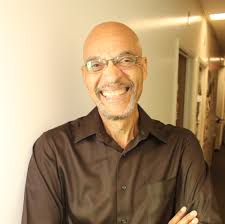President
Obama took much heat a year ago when he floated a series of proposed budget
cuts that would have slashed programs for the poor. The cuts would have reduced
funding or eliminated out right community service block grants that fund an
array of community education, health and social service programs in poor,
underserved, largely inner-city neighborhoods, cut programs in science,
technology, youth mentoring programs, and employment and training assistance.
The proposed cuts were just that, proposed, and there was little chance that
any of them would go into effect. The proposals were mostly made to counter the
forced concession that Obama had to make with the GOP on the Bush tax cuts, namely
allowing them to stay in place for the wealthy, and to wring more spending
concessions out of the GOP on unemployment benefits and health services.
Obama's
decisive election victory in November radically changed that. So far he has stood
firm on his demand that the wealthy pay more, and has proposed an array of
other tax hikes that would also squeeze more revenue out of the rich. The only
major spending cut at this point that has raised eyebrows among Democratic supporters
has been the $340 billion proposed cut from health care programs. But
the cuts would not directly hit the elderly and needy. The cuts are mostly to
health providers, and do not impact benefits. In addition, much of the public bought into the GOP's bogus line that Obama's alleged
reckless spending was hopelessly drowning the government in a sea of red ink.
Nervous foreign investors as well as a slew of financial experts and economists
endlessly claimed that the budget deficit -- projected to soar to nearly $1.6
trillion in the last fiscal year, a post-World War II record -- would saddle
the nation, with higher taxes; deeper cuts in education, health and social
services; staggering permanent debt; and possibly even bankruptcy.
That
doomsday scenario was part political hyperbole, part financial panic. Even then
many economists noted that the claim of financial Armageddon was way overblown.
But Obama is not out of the woods on spending cuts,
and neither are the poor. Though his proposals would protect programs that
directly benefit the poor, Medicaid, unemployment insurance, and food stamps,
the GOP's counter proposals don't. As
the deadline for reaching a deal to avoid the fiscal cliff creeps closer, the
pressure could build for the White House to eye programs that it has firmly and
repeatedly taken off the table for potential cuts. The two proposals put forth
by both sides outline deficit reduction efforts in broad budget categories and
are not entirely clear about whether cuts will hurt poor people or not. A small
army of the nation's leading business leaders have screamed loudly that a
plunge over the fiscal cliff would be a disaster for business, wreck the
nation's credit rating and shove the nation back into deep recession. That must
be avoided at all cost, they warn.
Obama's consistent answer to that is that a deal
can be cut by approving the tax hikes and revenue raising measures he's
proposed, as well as the major check that he wants to put on the endless runaway military spending on the
other of the two wars that he inherited from Bush . This would bring the deficit under $1 trillion and would
spare cutting programs that would devastate the poor and working class.
The
political and social and economic consequences of the fiscal cliff debate on
the poor are enormous. Surveys show that the ranks of the poor are still huge
and that the wealth and income gap between the rich and poor is wider than in
recent years. There's also the greater public
recognition that Social Security, Medicare and Medicaid, unemployment insurance and other government funded programs play
a huge part in bolstering the economy, and American's living standards .
The GOP's favorite whipping program food stamps is a
perfect example of that. It lifted
nearly 4 million people, almost 2 million of them children, out of poverty if
that aid been counted as income. Then there's the Earned Income Tax Credit,
which is a refundable federal credit for low- to moderate-income working
Americans. The estimate is that this lifted nearly 6 million people, half of
them children, out of poverty. These programs provide income for the poor that
goes directly into spending on goods and services. This in turn creates jobs, spurs
business expansion, and sharply boosts tax revenues for local, state and the federal
governments. The poor far from being a drag on the economy fuel it with their
spending. Obama's budget does
not hammer the poor. The GOP's counter to it would. Obama's proposals as they
now stand are the only ones that keep the poor from barreling over the fiscal
cliff.
Earl Ofari Hutchinson is an
author and political analyst. He is a weekly co-host of the Al Sharpton Show on
American Urban Radio Network. He is the author of How Obama Governed: The Year
of Crisis and Challenge. He is an associate editor of New America Media. He is
host of the weekly Hutchinson Report Newsmaker Hour heard weekly on the
nationally network broadcast Hutchinson Newsmaker Network.
Follow Earl Ofari Hutchinson
on Twitter: www.twitter.com/earlhutchinson




